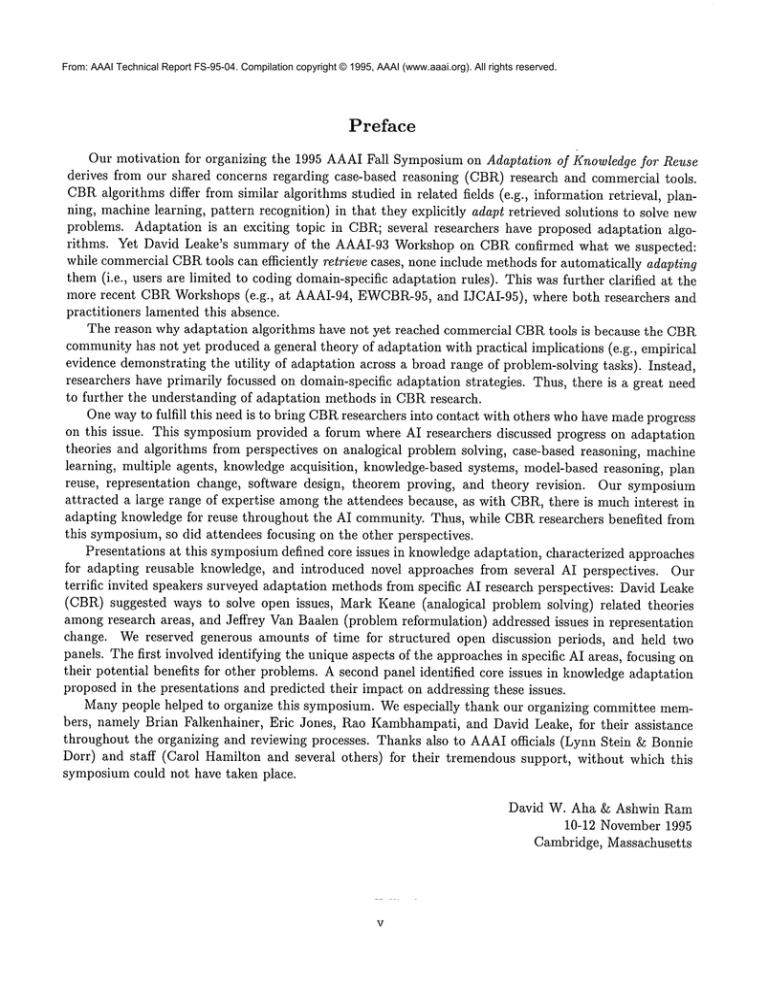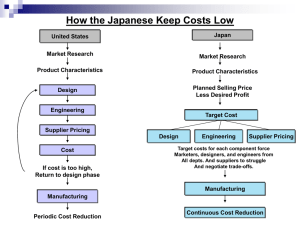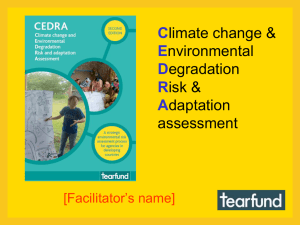Document 13784244
advertisement

From: AAAI Technical Report FS-95-04. Compilation copyright © 1995, AAAI (www.aaai.org). All rights reserved. Preface Our motivation for organizing the 1995 AAAIFall Symposiumon Adaptation of Knowledge for Reuse derives from our shared concerns regarding case-based reasoning (CBR) research and commercial tools. CBRalgorithms differ from similar algorithms studied in related fields (e.g., information retrieval, planning, machine learning, pattern recognition) in that they explicitly adapt retrieved solutions to solve new problems. Adaptation is an exciting topic in CBR; several researchers have proposed adaptation algorithms. Yet David Leake’s summary of the AAAI-93 Workshop on CBRconfirmed what we suspected: while commercial CBRtools can efficiently retrieve cases, none include methods for automatically adapting them (i.e., users are limited to coding domain-specific adaptation rules). This was further clarified at the more recent CBRWorkshops (e.g., at AAAI-94, EWCBR-95,and IJCAI-95), where both researchers and practitioners lamented this absence. The reason why adaptation algorithms have not yet reached commercial CBRtools is because the CBR communityhas not yet produced a general theory of adaptation with practical implications (e.g., empirical evidence demonstrating the utility of adaptation across a broad range of problem-solving tasks). Instead, researchers have primarily focussed on domain-specific adaptation strategies. Thus, there is a great need to further the understanding of adaptation methods in CBRresearch. One wayto fulfill this need is to bring CBRresearchers into contact with others whohave madeprogress on this issue. This symposiumprovided a forum where AI researchers discussed progress on adaptation theories and algorithms from perspectives on analogical problem solving, case-based reasoning, machine learning, multiple agents, knowledge acquisition, knowledge-based systems, model-based reasoning, plan reuse, representation change, software design, theorem proving, and theory revision. Our symposium attracted a large range of expertise amongthe attendees because, as with CBR,there is muchinterest in adapting knowledge for reuse throughout the AI community. Thus, while CBRresearchers benefited from this symposium,so did attendees focusing on the other perspectives. Presentations at this symposiumdefined core issues in knowledge adaptation, characterized approaches for adapting reusable knowledge, and introduced novel approaches from several AI perspectives. Our terrific invited speakers surveyed adaptation methods from specific AI research perspectives: David Leake (CBR) suggested ways to solve open issues, Mark Keane (analogical problem solving) related theories amongresearch areas, and Jeffrey Van Baalen (problem reformulation) addressed issues in representation change. We reserved generous amounts of time for structured open discussion periods, and held two panels. The first involved identifying the unique aspects of the approaches in specific AI areas, focusing on their potential benefits for other problems. A second panel identified core issues in knowledgeadaptation proposed in the presentations and predicted their impact on addressing these issues. Manypeople helped to organize this symposium. We especially thank our organizing committee members, namely Brian Falkenhainer, Eric Jones, Rao Kambhampati, and David Leake, for their assistance throughout the organizing and reviewing processes. Thanks also to AAAIofficials (Lynn Stein & Bonnie Dorr) and staff (Carol Hamilton and several others) for their tremendous support, without which this symposiumcould not have taken place. David W. Aha & Ashwin Ram 10-12 November 1995 Cambridge, Massachusetts



